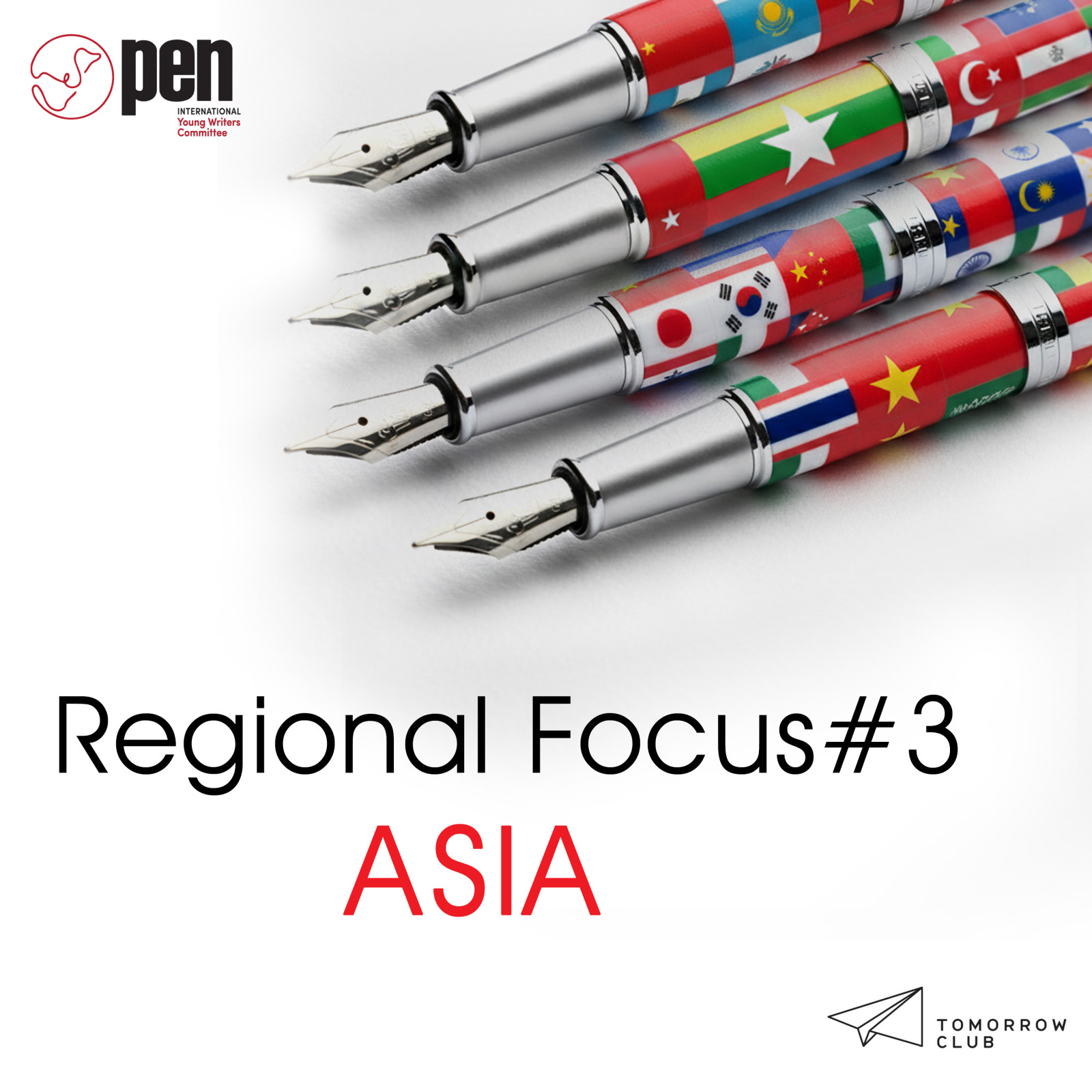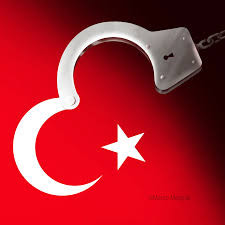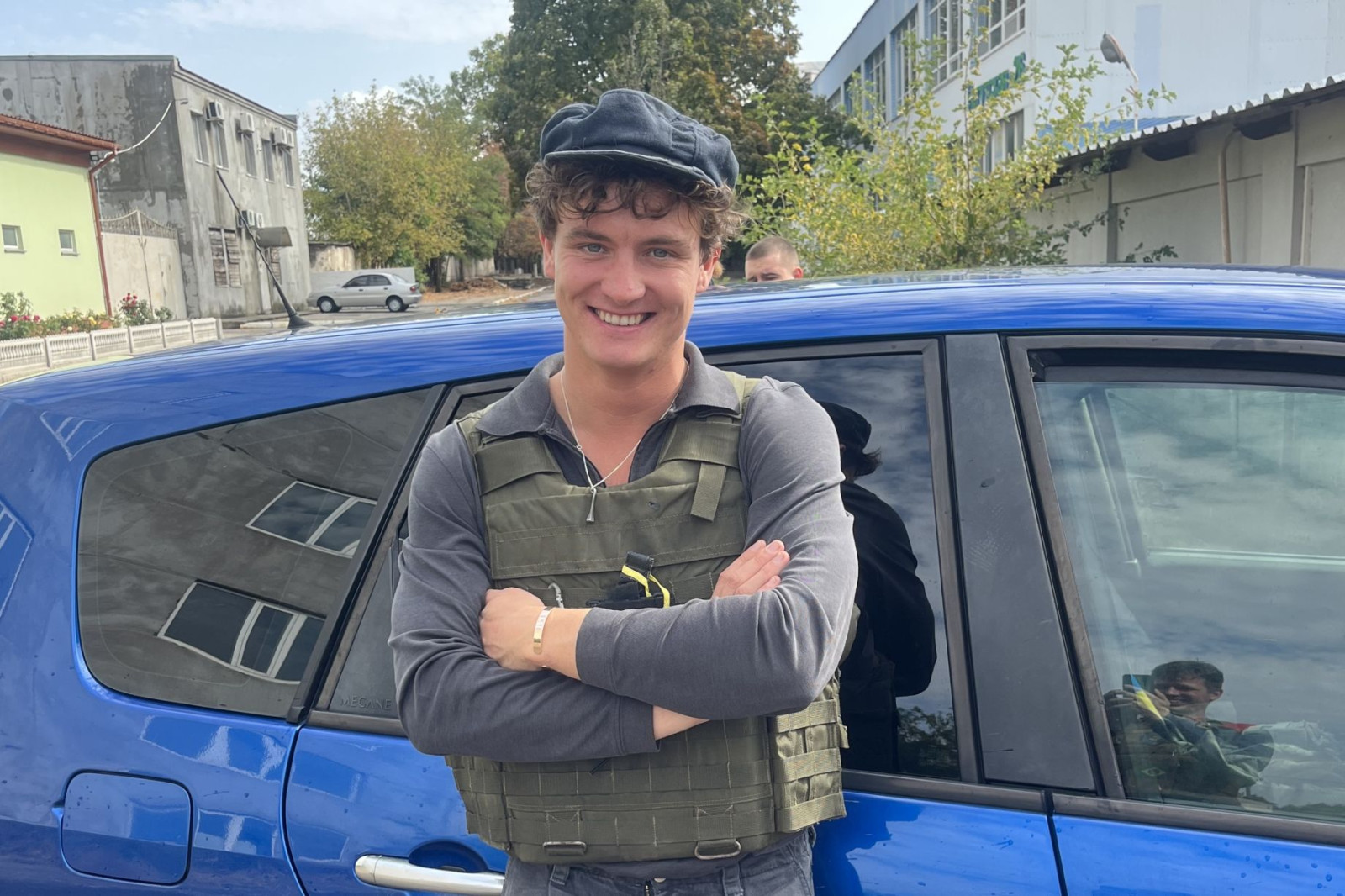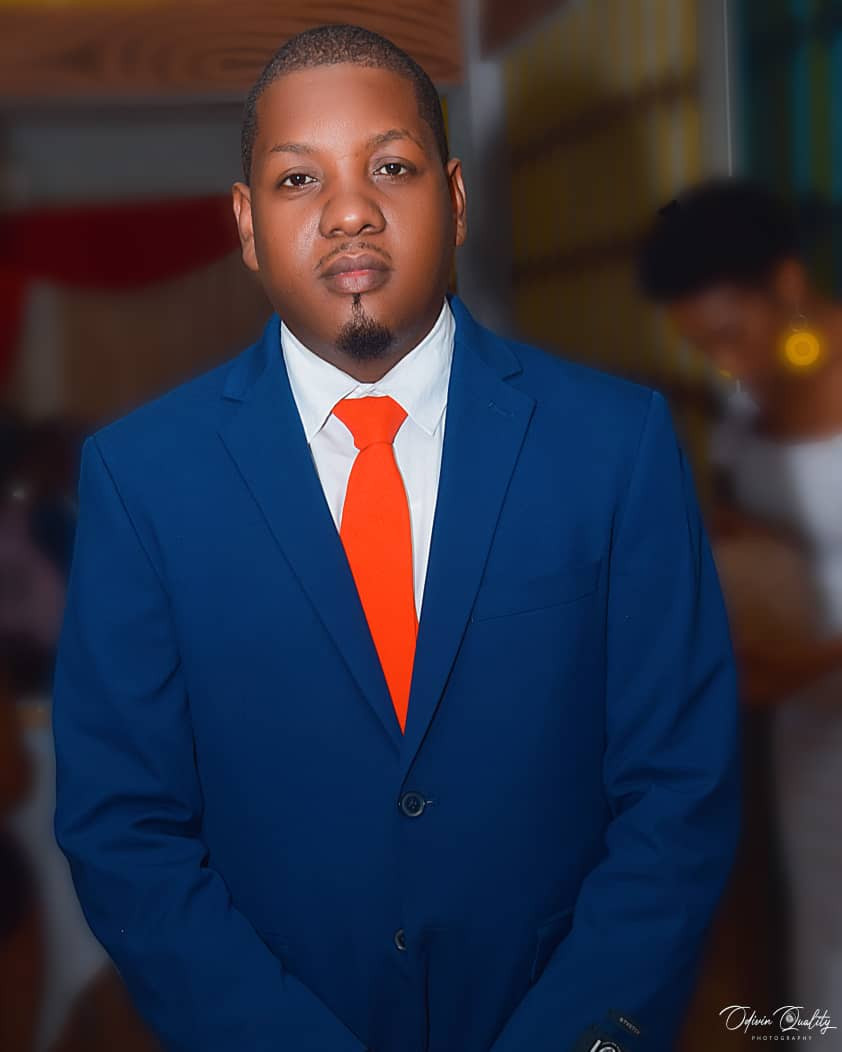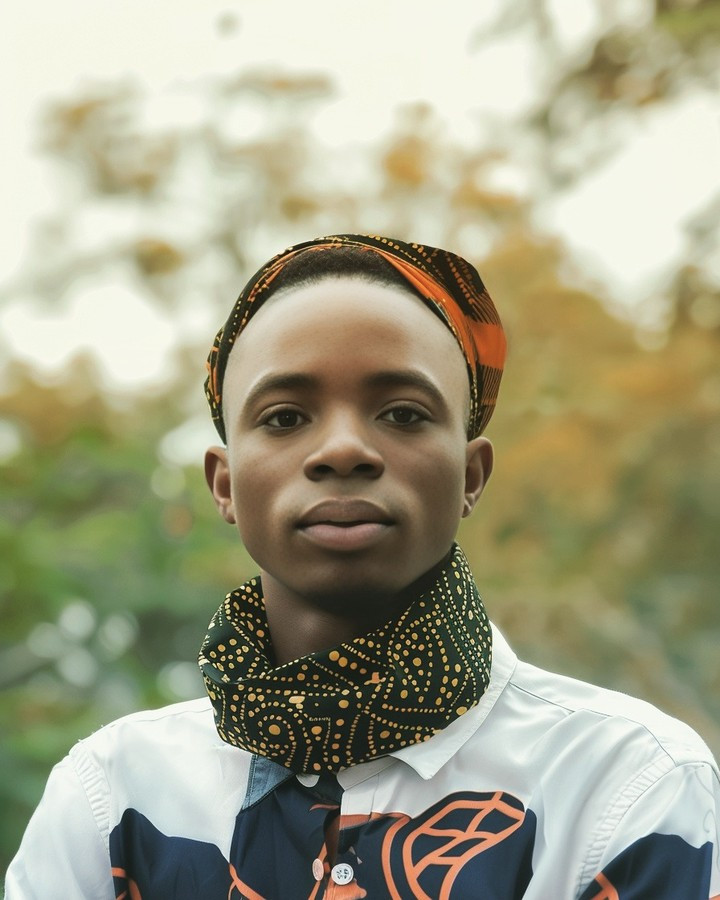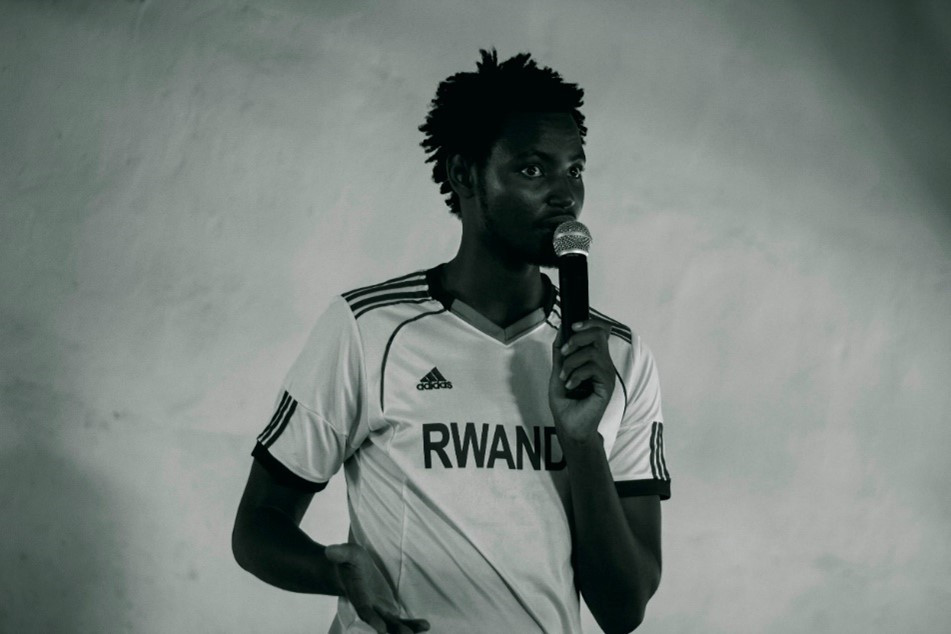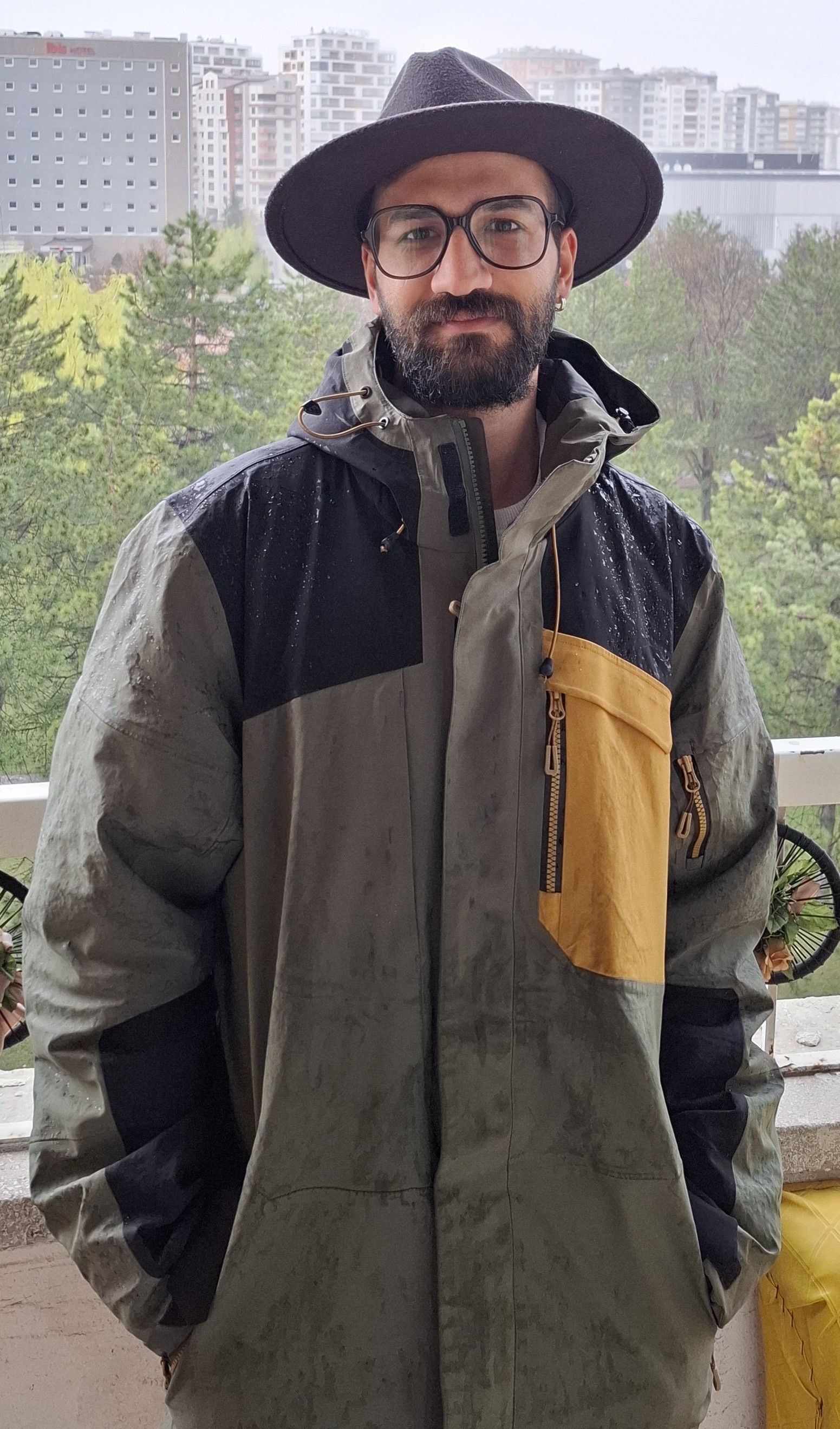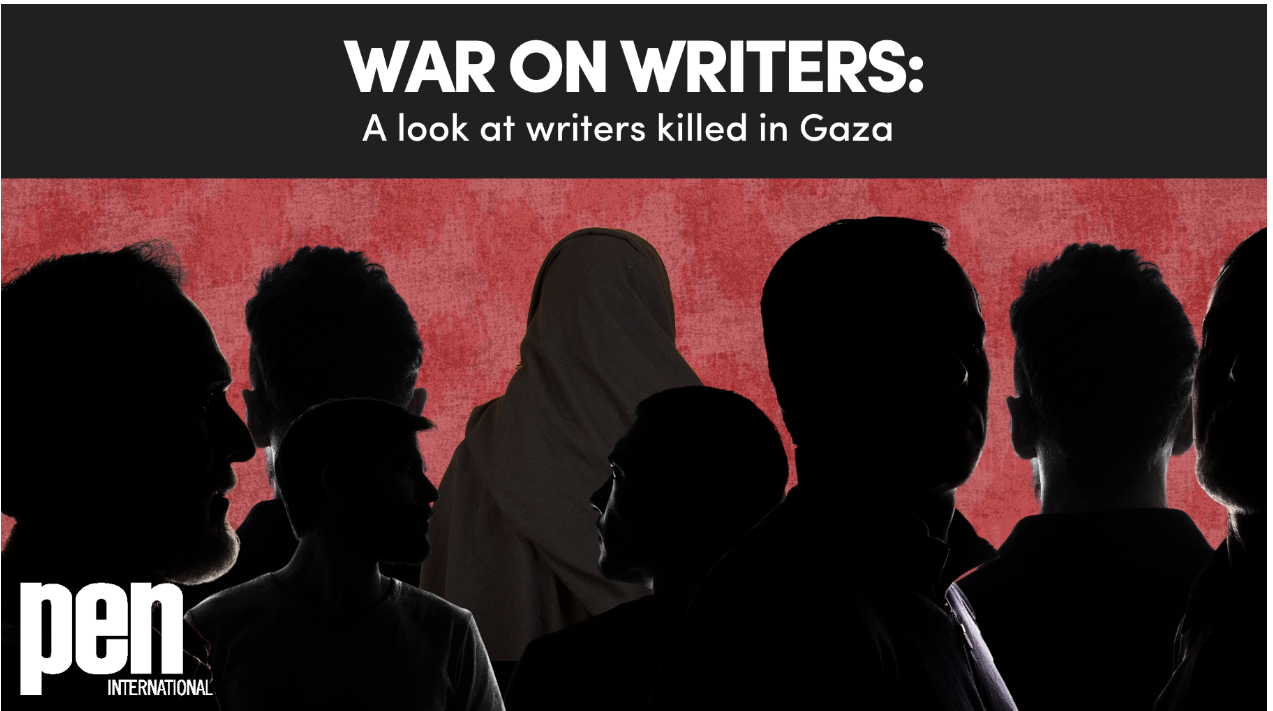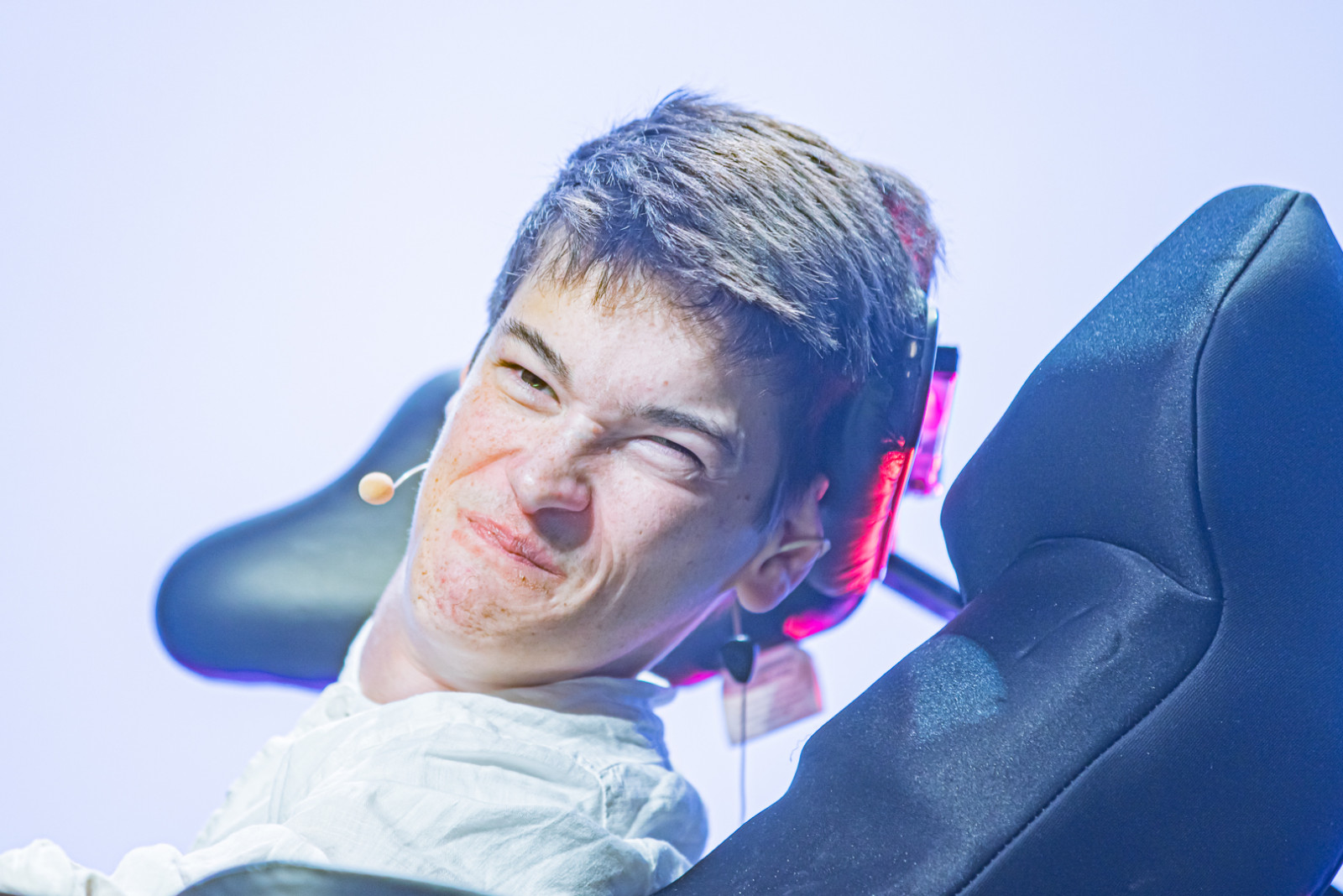Original text in Burmese. English Translation by Theo Maung Below
Listen To the Podcast Interview
on our series Brave Young Voices on Spotify.
“No one is really free until everyone is free” ဆိုတဲ့ စကားကို ကြားဖူးကြမှာပါ။ ဒီစကားကို ကျွန်တော် အမှန်တကယ်ပဲ ယုံကြည်ပါတယ်။ လွတ်မြောက်မှု (freedom) နဲ့ အခွင့်အရေး (right) ဆိုတဲ့အကြောင်းတွေပြောကြတဲ့အခါ ကျွန်တော်တို့ဟာ ကမ္ဘာမှာ hot topic ဖြစ်မနေတဲ့၊ မိန်းစထွင်းမီဒီယာရဲ့ စာမျက်နှာတွေပေါ် ရောက်မလာတဲ့ အရေးကိစ္စတွေအကြောင်းကို အမြဲတစေ မေ့လျော့နေတတ်ကြတယ်။ အဲ့ဒီထဲမှာ ကျွန်တော်မွေးရပ်မြေဖြစ်တဲ့ မြန်မာနိုင်ငံလည်း ပါပါတယ်။
မြန်မာနိုင်ငံက ပြဿနာတွေအကြောင်း အကျဉ်းချုံးပြန်ပြောပြရရင် ၂၀၂၁ ခုနှစ် ဖေဖော်ဝါရီ ၁ ရက်နေ့မှာ ရွေးကောက်ခံအစိုးရကို မြန်မာစစ်တပ်ကဖြုတ်ချပြီး အာဏာသိမ်းမှု ဖြစ်ခဲ့ပါတယ်။ အဲ့ဒီအချိန်ကတည်းကစလို့ သန်းနဲ့ချီတဲ့ လူတွေ ငြိမ်းချမ်းစွာဆန္ဒပြတာကို သေနတ်နဲ့ ပစ်တာ၊ ဒီလိုနဲ့ လူငယ်တွေအများအပြား တောခိုပြီး လက်နက်ကိုင်တပ်ဖွဲ့တွေဖွဲ့ကာ ပြန်လည်တော်လှန်တာ တွေဖြစ်ခဲ့ပါတယ်။ အခုဆိုရင် ဒီပြဿနာတွေဟာ (၅)နှစ်ထဲကို ဝင်ခဲ့ပါပြီ။ ဒီလိုအချိန်ကြာလာတာနဲ့ အမျှ မြန်မာစစ်တပ်ဟာ သူအုပ်စိုးထားနိုင်တဲ့ နယ်မြေဒေသတွေမှာ လူတွေရဲ့ အခွင့်အရေးနဲ့ လွတ်လပ်စွာ ထုတ်ဖော်ပြောကြားခွင့်တွေကို ဆိုးဆိုးဝါးဝါးဖိနှိပ်ထားခဲ့ပါတယ်။ ဒါ့အပြင် မရေတွက်နိုင်လောက်တဲ့ အပြစ်မဲ့ပြည်သူတွေကို လေယာဉ်နဲ့ ဗုံးကြဲတာ၊ မဟုတ်မမှန်စွပ်စွဲပြီး ထောင်ချနှိပ်စက်တာ၊ လူမဆန်လောက်တဲ့ စစ်ရာဇဝတ်မှုတွေကျူးလွန်တာ စတာတွေ လုပ်ဆောင်နေခဲ့ပါတယ်။ UNHCR ရဲ့ အဆိုအရဆိုရင် နိုင်ငံတွင်းစစ်ဘေးရှောင်နေရတဲ့ IDP အရေအတွက်တင် ၃ သန်းကျော်ရှိနေပြီး၊ တခြားနိုင်ငံတွေမှာ ဒုက္ခသည် (သို့) ခိုလှုံနေရတဲ့သူ ၁.၂ သန်းခန့် ရှိနေပါတယ်။
တစ်ချိန်တည်းမှာပဲ မြန်မာစစ်တပ်ဟာ သူအုပ်စိုးထားနိုင်တဲ့ဒေသက လူတွေကို ဒီ (၅)နှစ်အတွင်းမှာ နည်းမျိုးစုံနဲ့ တစ်ရစ်ပြီးတစ်ရစ် ဝက်အူရစ်သလို ကြပ်တည်းလာအောင် လုပ်နေခဲ့တယ်။ အဓိက ရည်ရွယ်ချက်ကတော့ လူတွေဟာ စီးပွားရေး၊ လူမှုရေးပြဿနာတွေ ပိုပိုတိုးလာလေ၊ သူတို့ကို တော်လှန်မယ့်သူတွေ တစ်စစ ပိုနည်းလာလေ ဆိုတဲ့အချက်ပါပဲ။ ဒီ (၄)နှစ်တာအတွင်းမှာ စီးပွားရေး တဟုန်ထိုးကျလို့ ကုန်စျေးနှုန်း ၂-ဆ၊ ၃-ဆ တက်လာပေမယ့် လုပ်ခလစာတွေက လွန်ခဲ့တဲ့ (၄)နှစ်ကအတိုင်းပဲဖြစ်နေတာ၊ မူးယစ်ဆေးဝါးတွေကို လွယ်လွယ်ကူကူ အသုံးပြုခွင့်ပေးထားတာ၊ မြို့တွေ၊ ရွာတွေထဲမှာ စစ်တပ်လက်ကိုင်တုတ်ဖြစ်တဲ့ လူမိုက်ဂိုဏ်းတွေ ရမ်းကားနေတာ စတာတွေ ပိုများလာပါတယ်။ ဒီတော့ လူငယ်တွေကလည်း ဒီလို နိစ္စဒူဝပြဿနာတွေကြားမှာ အဆင်ပြေအောင် နေထိုင်နေရတဲ့အတွက် သူတို့အပေါ်ဖိနှိပ်နေတာကို လွတ်လွတ်လပ်လပ်ဝေဖန်ပြောဆိုဖို့တောင် အာရုံမရ ဖြစ်လာကြပါတယ်။
အထူးသဖြင့် အနုပညာသမားတွေကို မြန်မာစစ်တပ်က တင်းတင်းကြပ်ကြပ်ကို ကန့်သတ်မှုတွေလုပ်ထား ပါတယ်။ သူတို့ရဲ့ လုပ်ရပ်တွေ၊ မြန်မာပြည်တွင်းကအခြေအနေတွေကို လွတ်လပ်စွာပြောဆိုခွင့် မရအောင် ဆင်ဆာတွေအဆင့်ဆင့်တင်းကျပ်ထားပါတယ်။ “ခုက ဆင်ဆာတောင်မဟုတ်တော့ဘူး။ သူတို့မကြိုက်တာ မြင်တာနဲ့ကိုလိုက်ဖမ်းနေတာလေ။ သူတို့ကတော့ရှင်းတယ်၊ ဘာပုဒ်မ၊ ညာပုဒ်မ တွေလုပ်မနေတော့ဘူး။ အရင်ဖမ်းတယ်။ ပြီးရင် နိုင်ငံဂုဏ်သိက္ခာညှိုးနွမ်းစေမှု ပေါ့” လို့ ဘန်ကောက်အခြေစိုက် မြန်မာလူမျိုး ရုပ်ရှင်ပရိုဂျူစာတစ်ဦးဖြစ်တဲ့ စု ကတော့ပြောပါတယ်။ စုဟာ အာဏာသိမ်းပြီးနောက်ပိုင်းမှာ သူမရဲ့ လုံခြုံရေးအခြေအနေတွေကြောင့် ဘန်ကောက်ကို ပြောင်းရွှေ့လာတဲ့သူဖြစ်ပါတယ်။ “အထဲမှာကျန်နေတဲ့ အနုပညာရှင်တွေအတွက်ကျတော့ တစ်ခုခုလွတ်လွတ်လပ်လပ်ပြောချင်ရင် နိုင်ငံပြင်ထွက်မှရမယ်။ အထဲမှာပဲ ဆက်နေမယ်ဆိုရင်တော့ တစ်ခုခုပြောမယ်ဆို အန္တရာယ်ရှိမယ်ပေါ့။ ဒီတော့ မထူးဇာတ်ခင်းပြီး သူတို့ (စစ်တပ်) အလိုကျ ငြိမ်နေလိုက်ကြရတာပေါ့” လို့ သူမကဆက်ပြောပါတယ်။ စု ပြောသလိုပါပဲ .. အဖြစ်မှန်တွေကို ထိရောက်မှုအရှိဆုံး ထုတ်ဖော်ပြောဆို လွှမ်းမိုးနိုင်တဲ့ ပြည်တွင်းနေ အနုပညာသမား တွေဟာ နီးရာဓါးကို ကြောက်နေရတဲ့အတွက် ဖိနှိပ်မှုကြားမှာပဲ လိုက်လျောညီထွေဖြစ်အောင် မတတ်သာဘဲ နေလိုက်ရပါတော့တယ်။
တစ်ချိန်တည်းမှာပဲ လူငယ်အများစုရဲ့ နေ့စဉ်ဘဝက အမြဲတစေ မွန်းကြပ်၊ ကျပ်တည်းနေတာကြောင့် ထွက်ပေါက်ရှာရင်း လွယ်လွယ်ရတဲ့မူးယစ်ဆေးစွဲတဲ့ပြဿနာတွေ၊ မိန်းကလေးတွေ ဆိုရင်လည်း ငွေရှာရခက်ခဲလာတော့ ပြည့်တန်ဆာလုပ်ငန်းတွေမှာ ဝင်လုပ်ရင်း မရုန်းထွက်နိုင်တော့တာတွေ အများကြီးဖြစ်လာပါတယ်။ ဒီလိုကိစ္စတွေက စစ်တပ်အတွက်တော့ သူတို့အကြိုက်ပါပဲ။ ဒီလို နေ့စဉ်ဘဝမှာ ရုန်းကန်ရလေလေ၊ သူတို့ကို တော်လှန်မယ့်သူ၊ ဝေဖန်ပြောဆိုမယ့်သူ နည်းလေပါပဲ။ “မြန်မာပြည်က လူတွေကျတော့ လှောင်အိမ်ထဲကငှက်လေးတွေလိုပဲ။ အပြင်မှာဘာဖြစ်သလဲဆိုတာလည်း စိတ်မဝင်စားနိုင်တော့ဘူး။ လှောင်အိမ်ထဲမှာပဲ ဘယ်လိုရှင်သန်အောင်နေရမလဲပဲ တွေးတော့တာ။သူတို့ (စစ်တပ်)သတ်မှတ်ထားတဲ့ စည်းမျဉ်းတွေထဲမှာနေရင်း၊ နေရင်းနဲ့ ဒါကြီးကို နေသားကျသွားတာ” လို့ စစ်မှုထမ်းဥပဒေကို ရှောင်လွှဲနိုင် ဖို့ ထိုင်းနိုင်ငံကိုရှောင်ပြေးလာတဲ့ မြန်မာလူငယ် အိုရီယွန် က သူ့အမြင်ကို ပြောပါတယ်။
နိုင်ငံတွင်းမှာ စနစ်တကျဖိနှိပ်မှုတွေများလာတဲ့အခါ အိုရီယွန်တို့လို တစ်ချို့လူငယ်တွေက နိုင်ငံအပြင်ကိုထွက်ပြီး ဘဝကို ရပ်တည်ဖို့ ကြိုးစားလာကြပါတယ်။ ဒီအချိန်မှာတော့ စစ်တပ်က နောက်တစ်ဆင့်အနေနဲ့ ၂၀၂၃ နှစ်စမှာ စစ်မှုမထမ်းမနေရဥပဒေကို ပြဌာန်းလိုက်ပါတော့တယ်။ ဒါဟာ သူတို့စစ်ရေးအရ စစ်သားပြုန်းတီးမှုကို ဖာထေးရာရောက်သလို၊ ပြင်ပနိုင်ငံတွေရောက်သွားပြီး သူတို့ကို ပြန်လည်တော်လှန်မယ့်လူငယ်တွေ အားလျော့သွားအောင် တစ်ဖက်ကလုပ်တဲ့သဘောပါပဲ။ ဒါ့အပြင် နိုင်ငံပြင်ကို တရားဝင်နည်းနဲ့ ထွက်မယ့် လူငယ်တွေကို လေဆိပ်တွေမှာ အတင်းအကြပ်စစ်ဆေးတာ၊ ပေးမထွက်တာ၊ နိုင်ငံကူးလက်မှတ်တွေကို လွယ်လွယ်နဲ့လုပ်မရအောင် တင်းကြပ်တာတွေ လုပ်လာခဲ့ပါတယ်။ ဒီတော့ အတင်းအကြပ်စစ်မှုထမ်းခိုင်းမှာကို ကြောက်လို့ ရှောင်ပြေးတဲ့လူငယ်တွေဟာ တရားမဝင်နည်းနဲ့ ထိုင်းနယ်စပ်ကနေ ခိုးဝင်တာတွေ ဖြစ်လာပါတော့တယ်။ ဒီအခါမှာတော့ ထိုင်းနယ်စပ်စောင့်တပ်က ဖမ်းမိရင်၊ မြန်မာစစ်တပ်လက်ထဲ တည့်တည့်ကြီးပြန်ထည့်ပေးတော့ အဲ့ဒီထွက်ပြေးတဲ့လူငယ်တွေက စစ်တပ်ရဲ့လူသစ်စုဆောင်းခံ တပ်သားတွေ ဖြစ်ကုန်ပါတယ်။ ပြီးရင် လအနည်းငယ်အတွင်းမှာတင် ရှေ့တန်းစစ်မျက်နှာတွေကို ပို့လိုက်တဲ့အတွက် ဘာစစ်ပညာမှ ကောင်းကောင်းမတတ်ထားတဲ့ အဲ့ဒီလူငယ်တွေဟာ ရှေ့တန်းမှာ အသေခံရတဲ့ တပ်သားတွေသာ ဖြစ်သွားရတော့တယ်။
ကဲ … ဒီတော့ စစ်တပ်ရဲ့ တင်းကြပ်မှုတွေကနေ ဖောက်ထွက်ပြီး တခြားနိုင်ငံ (အထူးသဖြင့် ထိုင်းနိုင်ငံ) တွေကို ရောက်သွားတဲ့ လူငယ်တွေကရော။ သူတို့ရဲ့ မကျေနပ်ချက်တွေနဲ့ ဖိနှိပ်ခံရမှုတွေကို လွတ်လွတ် လပ်လပ် ပြောဆိုနိုင်ပြီလား ဆိုတော့လည်း နိုင်ငံရပ်ခြားမှာ တခြားပြဿနာတွေက သူတို့ကို စောင့်ကြိုနေပြန်ပါတယ်။ “ပြင်ပရောက်လာတဲ့ အနုပညာသမားတွေကတော့ သူတို့တတ်နိုင်တဲ့နည်းနဲ့ တစ်ခုခုတော့ ပြောနိုင်အောင် လုပ်နေကြတာပဲပေါ့နော်။ ဒါပေမယ့် အရမ်းအားရစရာတော့ ရှိမနေဘူးပေါ့။” လို့ နိုင်ငံပြင်ပကို ရှောင်တိမ်းလာတဲ့ မြန်မာအနုပညာသမားတွေရဲ့အခြေအနေနဲ့ပတ်သက်ပြီး လက်ရှိ ဆွီဒင်နိုင်ငံမှာ ပြောင်းရွှေ့နေထိုင်နေတဲ့ အဆိုတော်နဲ့ နောက်ခံအသံသရုပ်ဆောင် မာန်မာန်ကတော့ သူမရဲ့အမြင်ကို ပြောပါတယ်။ “မြန်မာ အနုပညာသမားတွေအနေနဲ့ နိုင်ငံတကာကလူတွေ သိနိုင်မယ့်အနေအထားထိ လုပ်နိုင်ရင်တော့ ပိုကောင်းမယ်လို့တော့မြင်တာပေါ့နော်။” မာန်မာန် ပြောသလိုပဲ ပြည်ပရောက်လူငယ်တွေဟာ မြန်မာစစ်တပ်ရဲ့ အာဏာစက်အဝေးကို ရောက်လာသည့်တိုင် သူတို့အသံကို ကမ္ဘာကကြားအောင် ထိထိရောက်ရောက်ပြောနိုင်ဖို့ ခက်ခဲနေဆဲပါ။ ပြည်ပကို တိမ်းရှောင်လာတဲ့ မြန်မာလူငယ်အနုပညာသမားတွေအပါအဝင် လူငယ်အများစုအတွက် အဓိကကတော့ တရားဝင်နေထိုင်ခွင့်ရဖို့ ရုန်းကန်ရတာ၊ အများစု ပြောင်းရွှေ့လာတဲ့ ထိုင်းနိုင်ငံမှာ အလုပ်အကိုင်ရဖို့ အင်မတန်ခက်ခဲတာ၊ အလုပ်လုပ်ခွင့်ပါမစ်မရှိဘဲ တရားမဝင် အလုပ်လုပ်ရတဲ့အတွက် လစာတွေ ခေါင်းပုံဖြတ်ခံရတာ စတဲ့ပြဿနာတွေဖြစ်လာပြန်ပါတယ်။ ဒီတော့ နိုင်ငံရပ်ခြားမှာ ရပ်တည်နေထိုင်နိုင်ဖို့ ရုန်းကန်နေရတဲ့အတွက် - မြန်မာနိုင်ငံတုံးကလိုပဲ ကိုယ့်နိုင်ငံက စစ်တပ်ကို တွန်းလှန်ဖို့မပြောနဲ့ စားဝတ်နေရေးဖြေရှင်းနေရတာနဲ့တင် အနာဂတ်ပျောက်နေတဲ့ မြန်မာလူငယ်တွေဟာ ဘန်ကောက်၊ ချင်းမိုင်နဲ့ မဲဆောက်လို ထိုင်းမြို့တွေမှာ သန်းနဲ့ချီပြီး ဖြစ်လာပြန်ပါတယ်။
မာတင် ဟာ တက်သစ်စ ဒီဂျေ၊ မြူးဇစ်ပရိုဂျူစာတစ်ယောက်ပါ။ စစ်အာဏာမသိမ်းခင် တက္ကသိုလ်မှာတုံးက ကျောင်းသားသမဂ္ဂလှုပ်ရှားမှုတွေမှာ ပါဝင်ခဲ့သူလည်းဖြစ်ပါတယ်။ အသက် (၂၃)နှစ်အရွယ် မာတင်က တစ်ချိန်က ကြီးမားတဲ့မျှော်လင့်ချက် အိပ်မက်တွေရှိခဲ့ပေမယ့် စစ်ကောင်စီရဲ့ အတင်းအကြပ်စစ်မှုထမ်း ဥပဒေကို ရှောင်တိမ်းရင်း အခုအချိန်မှာတော့ သူဟာ ထိုင်း-မြန်မာနယ်စပ်က မြို့ငယ်တစ်ခုမှာ အောက်ခြေသိမ်း အလုပ်တွေကို လုပ်ပြီး စားဝတ်နေရေးကိုဖြေရှင်းနေရပါတယ်။ “အကြီးဆုံး ရုန်းကန်ရတာကတော့ မြန်မာဖြစ်နေလို့ကို အလုပ်ရှာလို့မလွယ်တာပဲ” လို့ မာတင်ကပြောပါတယ်။ “ဖူးခတ်မှာတုံးက မြန်မာဆိုရင် ဆားဗစ်အလုပ်ကလွဲပြီးဘာမှမရဘူး။ ကျွန်တော်လည်း တခြားအလုပ်တွေလျှောက်တာပဲ။ ဒါပေမယ့် မရဘူး။ မြန်မာမို့လို့တဲ့။ မြန်မာဆိုရင် စားပွဲထိုးရယ်၊ သန့်ရှင်းရေးရယ်၊ လုံခြုံရေးရယ်။ ဒါပဲ။” မာတင်က ထိုင်းနိုင်ငံမှာ သူရင်ဆိုင်ခဲ့ရတဲ့ လူမျိုးရေးခွဲခြားခံရမှု ပြဿနာတွေကို ပြောပြပါတယ်။
ACLED ရဲ့ အချက်အလက်တွေအရ မြန်မာနိုင်ငံကစစ်ပွဲတွေကြောင့် ၂၀၂၁ ခုနှစ်ကစလို့ လူပေါင်း ၅၀၀၀၀ ကျော် သေဆုံးခဲ့ရပြီး၊ ဒါဟာ အဆိုပါကာလအတွင်း ကမ္ဘာတစ်ဝှမ်းမှာ လက်နက်ကိုင်ပဋိပက္ခကြောင့် သေဆုံးရတဲ့အရေအတွက်အနက် အမြင့်ဆုံးဖြစ်ပါတယ်။ နောက်ပြီး လက်နက်ကိုင်ပဋိပက္ခတွေအကြောင့် တိုက်ရိုက်ထိခိုက်သေဆုံးရတဲ့ အရပ်သားပြည်သူအရေအတွက်မှာ မြန်မာနိုင်ငံဟာ ပါလက်စတိုင်း၊ နိုင်ဂျီးရီးယားနဲ့ ကွန်ဂိုဒီမိုကရက်တစ်သမ္မတနိုင်ငံတွေရဲ့နောက် စတုတ္ထနေရာမှာရှိနေပါတယ်။ ဒါပေမယ့်လည်း မြန်မာ့အရေးကိစ္စအပေါ် နိုင်ငံတကာရဲ့ စိတ်ဝင်စားမှုနဲ့ ပါဝင်ကူညီမှုက တစ်စထက်တစ်စ လျော့ကျလာတာမြင်ရပါတယ်။ အထူးသဖြင့် ပထဝီနိုင်ငံရေးအရ အလှမ်းဝေးတဲ့နိုင်ငံဖြစ်တဲ့အတွက် ဒီမိုကရေစီထွန်းကားပါတယ်ဆိုတဲ့ အနောက်နိုင်ငံအများစုဟာ သူတို့ရဲ့အကျိုးစီးပွားမပါတဲ့အတွက် ထိရောက်တဲ့ကူညီမှုတွေ၊ ထုတ်ဖော်ပြောဆိုမှုတွေဟာ တခြားအရေးတွေထက် သိသိသာသာ နည်းပါးနေပါတယ်။ “နိုင်ငံထဲမှာဘယ်လောက်ပဲ Atrocities တွေရှိရှိ၊ မြန်မာနိုင်ငံအကြောင်း အနောက်ကမ္ဘာက ဘာမှပြောမှာမဟုတ်ဘူး။ ဘာလို့လဲဆိုတော့ မြန်မာနိုင်ငံကိုက သူတို့အနောက်ကမ္ဘာအတွက် အကျိုးမရှိဘူးလေ” လို့ မာတင်က သူ့ခံစားချက်ကို ဆက်ပြောပါတယ်။ ဒီလိုအချက်တွေကပဲ မြန်မာစစ်တပ်အတွက် အားသာချက်လိုဖြစ်လာပြီး သူတို့စိတ်ထင်သလို လုပ်ခွင့်ရနေတာဖြစ်ပါတယ်။ မာန်မာန်ကတော့ ဒီကိစ္စနဲ့ပတ်သက်ပြီး “ကိုယ်နိုင်ငံမှာဖြစ်နေတဲ့ကိစ္စတွေနဲ့ ပတ်သက်ပြီး ပြင်ပနိုင်ငံတွေဆီက အကူအညီဘာမှမရဘူး။ ကိုယ့်နိုင်ငံအတွက် ကိုယ်ကိုယ်တိုင်ပဲ လုပ်ရမယ်ဆိုတဲ့ စိတ်ကြီးတော့ ဖြစ်လာခဲ့တယ်” လို့ သူမရဲ့အမြင်ကိုပြောပြပါတယ်။ တကယ်တော့ ဒီလိုဖြစ်နေတာဟာ အခုမှ မဟုတ်ပါဘူး။ လွန်ခဲ့တဲ့ နှစ်ပေါင်း (၇၀) နီးပါးအတွင်းမှာ ဒီအချက်ကိုပဲ အခွင့်ကောင်းယူပြီး မြန်မာစစ်တပ်အနေနဲ့ လုပ်ချင်တိုင်းလုပ်ခွင့် ရနေတာဖြစ်ပါတယ်။
ကျွန်တော့်ရဲ့တစ်ကိုယ်ရေစာအမြင်ကတော့ - မိန်းစထွင်းမီဒီယာတွေပေါ်မှာ ပြောဆိုနေကြတဲ့ ယူကရိန်းနဲ့ ပါလက်စတိုင်းအရေးတွေသည် အရေးအင်မတန်ကြီးသလိုပဲ၊ မြန်မာ့အရေးဟာလည်း လူသားချင်း စာနာထောက်ထားမှုနဲ့ လူအခွင့်အရေးရှုထောင့်ကကြည့်ရင်ကို မျက်ကွယ်ပြုမထားသင့်တဲ့ ကိစ္စတစ်ခု ဖြစ်ပါတယ်။ မြန်မာစစ်တပ်ဟာ သူတို့ရဲ့ဆိုးရွားတဲ့လုပ်ရပ်တွေအပေါ် လွတ်လပ်စွာဝေဖန်ပြောဆို ခွင့်မရအောင်၊ ပြောဆိုဖို့အတွက်အခွင့်အလမ်းမရှိအောင် ပြည်တွင်းမှာအမျိုးမျိုးသောနည်းလမ်းတွေကို သုံးပြီး ဖိနှိပ်ထားသလို၊ ပြည်ပရောက်လူငယ်အများစုဟာလည်း အမျိုးမျိုးသောအကြောင်းအရင်းတွေကြောင့် လူအများအာရုံစိုက်လာသည်အထိ ထုတ်ဖော်ပြောဆို နိုင်စွမ်းမရှိဖြစ်နေခဲ့တာ အချိန်အတော်ကြာခဲ့ပါပြီ။ ဆောင်းပါးအစမှာ ပြောခဲ့သလိုပါပဲ။ လူတိုင်းမလွတ်မြောက်သေးသရွေ့၊ ဘယ်သူမှမလွတ် မြောက်သေးပါဘူး။ ဒီတော့ နိုင်ငံတကာက လူငယ် Activist တွေ၊ Impact တစ်စုံတစ်ရာရအောင် လုပ်နိုင်စွမ်းရှိတဲ့ အဖွဲ့အစည်းတွေအနေနဲ့ မြန်မာလူငယ်နဲ့အတူရပ်တည်ပြီး မြန်မာ့အရေးကို နိုင်ငံတကာစင်မြင့်ထက်မှာ အခုထက်ပိုပြီး ပြောပေးဖို့၊ လူအများစုပိုပြီးသိလာအောင် ကြိုးစားပေးကြဖို့ လိုအပ်တယ်လို့ မြင်ပါတယ်။ ယူကရိန်းမလွတ်မြောက်သရွေ့ ဘယ်သူမှမလွတ်မြောက် သေးပါဘူး။ ပါလက်စတိုင်းမလွတ်မြောက်သရွေ့ ဘယ်သူမှမလွတ်မြောက်သေးပါဘူး။ မြန်မာနိုင်ငံသားတွေ မလွတ်မြောက်သရွေ့ ဘယ်သူမှမလွတ်မြောက်သေးပါဘူး။ ကျွန်တော်တို့တွေအတူ အမှန်တရားအတွက် ရပ်တည်ကြပါမယ်။ ဒါမှသာ ပိုပြီးသာယာတဲ့၊ အေးချမ်းတဲ့ ကမ္ဘာတစ်ခုကို ကျွန်တော်တို့ အတူတည်ဆောက်နိုင်မှာဖြစ်ပါတယ်။
ENGLISH
You might have heard the slogan, “No one is really free until everyone is free”. I truly believe it. When we speak about freedom and rights, we tend to overlook the issues that are not considered to be international hot topics or that are not given much coverage by the mainstream media. My home country Myanmar is one of these issues.
To give you an overview of the Myanmar crises, the Myanmar military committed a coup against the elected government on February 1st, 2021. Since then, more events have unfolded, such as many peaceful protestors being shot and a large number of youths choosing armed struggle by organizing an armed militia. It has been five years since it all began. As the struggle continues, the Myanmar military viciously oppresses human rights and the freedom of expression of the people living in the area under their administration. Moreover, they have also committed countless aerial bombings, arbitrary arrests, and the torture of and inhumane war crimes against innocent civilians. According to UNHCR, there are currently 3 million internally displaced people domestically and 1.2 million refugees internationally.
At the same time, the Myanmar military’s suppression of the people living under their rule has gotten stronger and stronger over these five years. The main intention behind the suppression is that increased economic and social difficulties mean that fewer people will be able to revolt against them. During the past four years, the economy has collapsed and the cost of living has skyrocketed two- to threefold, but wages have remained the same as they were four years ago. Access to drugs has gotten easier and the thuggery of the local thugs, who are also the henchmen of the military, has become more frequent. As youths are struggling to survive among such problems on an everyday basis, they cannot give their attention to freely criticizing the oppression upon them.
The censorship and restrictions imposed on artists by the Myanmar military are harsh. This censorship has multiple layers in order to prevent the disclosure of their actions and the situation in Myanmar. “The situation right now isn’t even censorship anymore. They [the military] just arrest people whenever they see something they don’t like. They don’t even try to charge them with crimes. They arrest the person first and then just charge them with state defamation,” Su, a Myanmar movie producer based in Bangkok, said. Su migrated to Bangkok after the coup due to her concerns about security. “The artists who are still in the country must migrate out of it if they want to express something freely. Otherwise, it is dangerous for them to express something while they are in the country. Therefore, they just have to accept the situation and play the way that they want,” she continued. As Su said, the artists in Myanmar who have the ability to express the truth in the most effective and influential way have to be wary of the danger lurking around them and they have no option but to live with the oppression.
Simultaneously, there has been an alarmingly increased rate of drug addiction caused by the abuse of easily accessible drugs, which people use to cope with the suffocation of daily life. Also, there is the problem of the prostitution of young women; due to economic difficulties, it is hard for them to quit sex work. All of these issues together create favorable conditions for the military. The harder people have to struggle for their daily survival, the fewer revolutionaries and critics the military has to deal with. “People in Myanmar are just like the birds in a cage. They cannot think or care about what is happening outside the cage; all they care about is their survival in the cage. They get used to the rules and sanctions imposed by them [the military], as they live under them,” said Orion, a Myanmar youth who escaped to Thailand to dodge conscription.
As the severity of systematic domestic oppression increases, some youths like Orion have to migrate out of the country for their survival. And so the military passed the 2024 conscription law (1) to counter that. The law also tries to fill the gap in the number of combatants and, on the other hand, it undermines the revolutionary force of the youth population. Moreover, they carry out strictly screening, restrict boarding at the airport and make it more difficult to get passports. That forces draft dodger youths to illegally smuggle themselves into Thailand across borders. When the Thai border guard force catches them, they transfer the detainees back to the Myanmar army and these draft dodger youths are forced to become the new recruits of the military. And then they are sent to the frontline after just a few months of training and the youths who barely have any military training become cannon fodder at the frontline.
Still, do the youths who could escape to the foreign countries, especially to Thailand, despite all of the restrictions, have the freedom of expression for their frustrations and oppressions? Unfortunately, other problems await them abroad. “The artists who migrated abroad try to get their voice out in any way they can, but the result isn’t very satisfying,” said Mun Mun, a singer and narrator who has immigrated to Sweden. “I think it would be better for Myanmar artists to advocate harder to make sure the international community knows.” As Mun Mun said, the youth diaspora is facing difficulties in making their voice heard by the international community even after being away from the rule of Myanmar military. For young Myanmar artists who have escaped abroad, they face challenges in the form of getting legal status for residence, the scarcity of employment opportunities for most immigrants, exploitation due to the lack of legal protections such as a work visa, and so on. Thus, millions of Myanmar youths end up with lost futures in Thai cities such as Bangkok, Chiangmai and Maesot, and they must expend all their energy to struggle for their own survival, let alone having the time and energy to revolt against the military.
Martin is a rising DJ and music producer. Before the coup, he was involved in student unions in the universities. 23-year-old Martin used to have big dreams, but now he has to work as a blue collar laborer in a small town on the Thai-Myanmar border while dodging conscription and facing racism in Thailand. “My biggest challenge finding a job is because I am a Burmese,” Martin said. “In Phuket, I couldn’t get any jobs other than service jobs because I am Burmese. I also applied for other jobs, but I wasn’t hired. Burmese are only employed as servers, janitors, and security staff. That’s all.” According to ACLED, the war in Myanmar has killed over 50,000 people since 2021, which is the highest among any other armed conflict globally over that period. And Myanmar ranks fourth, only behind Palestine, Nigeria and the Democratic Republic of Congo, in total number of civilian fatalities directly resulting from conflict.2 But we can see that the international community’s attention and contribution to Myanmar’s crisis is waning. Especially due to the geopolitical distance, the West is comparatively less likely to give effective support and advocacy to Myanmar, because it appears to offer nothing for their own interests. “No matter how many atrocities there are in the country, the West will never say anything about Myanmar as Myanmar cannot offer any benefits to the West,” Martin expressed. This in turn serves as a further advantage for the Myanmar military, leaving things at their mercy. Mun Mun said, “We get no support from other countries for the things happening in my country. I learned that we have only ourselves to rely on for our country.” The current situation is not new. For the last almost 70 years, the Myanmar military has been using this lack of interest as an advantage when it comes to having things their way.
In my personal opinion, the situations in Ukraine and Palestine, which are widely covered among the mainstream media, are very important, but so is what is happening in Myanmar when it is viewed from a humanitarian and human rights perspective, and it shouldn’t be neglected. The Myanmar military uses many methods to oppress freedom of expression and, for various reasons, most of the youth diaspora can’t speak loud enough to gain public attention around the world. As stated at the beginning of this article, “No one is really free until everyone is free”. I believe that international youth activists and the organizations that
have the capability to impact the situation should stand in solidarity with Myanmar youths and push harder to get more attention from the international community. Nobody is free until Ukraine is free. Nobody is free until Palestine is free. Nobody is free until the people of Myanmar are free. We shall stand for the truth and only by doing so, will we be able to build a better, peaceful world.
Translated by Theo Maung
Footnotes:
1.The Myanmar military declared the enforcement of “the People’s Military Service Law”*, which is commonly known as the conscription law, on February 10, 2024, which requires all male citizens aged 18 to 35 and all female citizens aged 18 to 27 to perform mandatory military service in the junta armed forces. Related link.
BIOGRAPHY
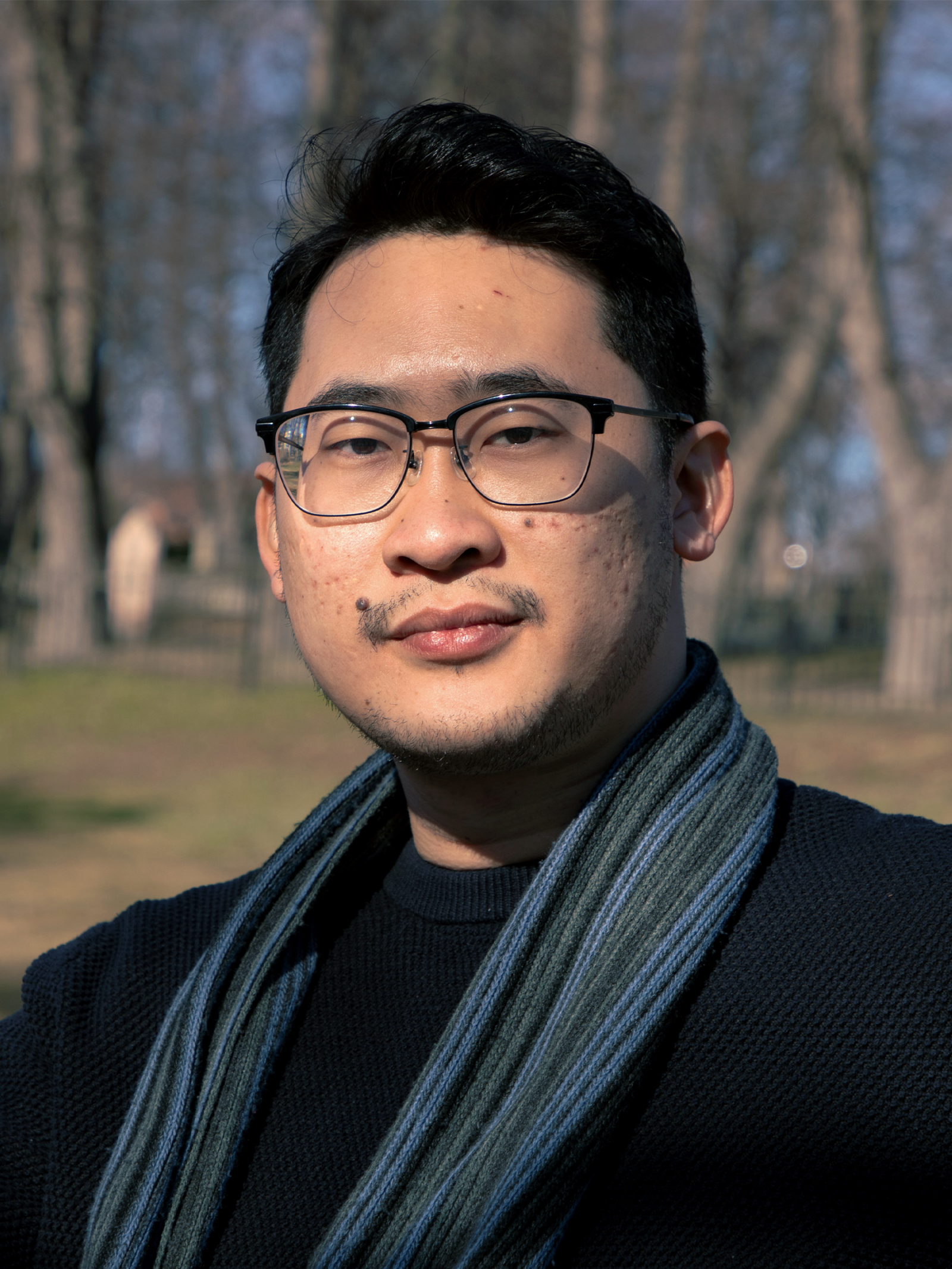
Sai Nyan Linn Sett is a Burmese script writer and director. Active since 2017, his films have explored quiet, emotional stories shaped by Myanmar’s social and political realities. He is also an alumnus of the FLY2019 program, run by the Busan Film Commission. His most acclaimed work, Myanmar Diaries (2022), created as part of the anonymous Myanmar Film Collective, won the Berlinale Documentary Award in 2022. Now residing in Sweden, he continues to make films about migration, identity, and ordinary lives in times of change.
